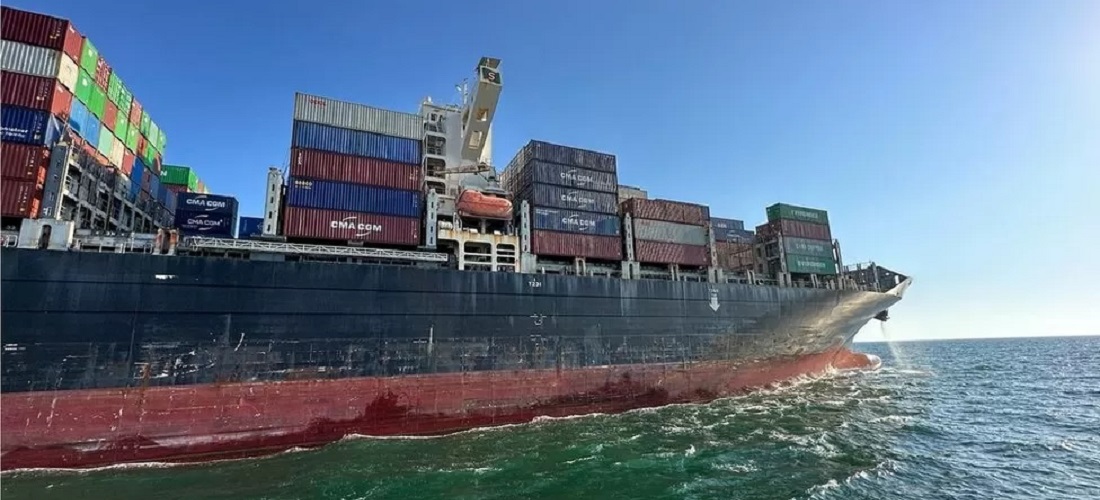
Ukraine seeks to restore Black Sea shipping despite Russian threats
Aug, 18, 2023 Posted by Gabriel MalheirosWeek 202333
The passage of a cargo ship from Ukraine to Turkey this week vindicated Kyiv’s gamble that Russia would not act on threats to attack commercial shipping in the Black Sea.
But the successful gambit leaves a bigger question for Ukraine: will any other commercial vessels follow the Joseph Schulte and dare to call Russia’s bluff?
The German/Chinese-owned cargo ship was the first vessel to make the journey out of Ukrainian waters since July, when Russia warned it would consider any civilian vessel leaving Ukraine’s ports as military targets.
Its daring journey was an attempt to show Ukraine could carve out a safe corridor across the Black Sea that was resilient enough to keep its exports flowing despite Russian belligerence.
Ukraine’s president Volodymyr Zelenskyy described the ship’s voyage as an “important step towards restoring the freedom of navigation in the Black Sea”. Last week, Kyiv announced it was seeking to set up a “humanitarian” corridor in the Black Sea allowing cargo ships to leave its ports safely. But analysts said commercial shipping, on a significant scale, was unlikely to be restored without Russia’s agreement.
The Joseph Schulte’s arrival in Istanbul on Friday after a two-day voyage from Odesa where it had been moored since February 2022 followed weeks of rising tensions over the shipping lanes. Ukraine issued threats to hit vessels heading to Russian ports — and targeted a Russian oil tanker in August — while Russia fired warning shots at a Turkish vessel heading for a Ukrainian port on the Danube river.
Even so, Ukraine proceeded with its experiment, confident that its onshore defence systems — with a range of about 100 nautical miles — could deter Russia’s navy from mounting an assault.
While travelling through Ukrainian waters the Joseph Schulte kept within this corridor, which Ukraine calls its “zone of destruction” [for hostile Russian ships], according to Dmytro Pletenchuk, a spokesperson for Ukraine’s navy. Ukrainian anti-ship rocket launchers are lined up along the coast to defend against any naval attacks within their range.
The vessel carried 30,000 tonnes of cargo, including foodstuffs. Its owners declined to comment on any specifics regarding the voyage and stressed that the container vessel “is not a grain carrier”.
Wheat prices fell after it left Ukraine’s waters but Carlos Mera, head of agri commodities market research at Rabobank in London, said it was unlikely to be the only factor in the “extremely volatile” market.
Evidence of other vessels successfully picking up cargo from Ukraine, rather than just leaving its waters, could bring down prices, Mera said. But this remained “very unlikely” without agreement from Russia.
Source: Financial Times
To read the original story, see: https://www.ft.com/content/7e80efa9-a35d-456f-a0bb-0614ae018014
-
Grains
Aug, 24, 2021
0
Brazilian corn is forecast to drop 15.5 % this year
-
Ports and Terminals
Jul, 06, 2021
0
MINFRA announces Santos privatization model is ‘practically signed’
-
Dec, 06, 2021
0
Port of San Francisco cargo handling up 25% in November
-
Trade Regulations
Apr, 12, 2023
0
Brazil to end tax exemption on international orders, targeting Asian e-commerce giants

